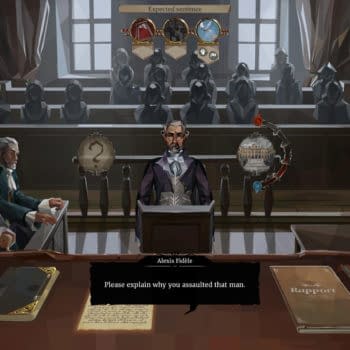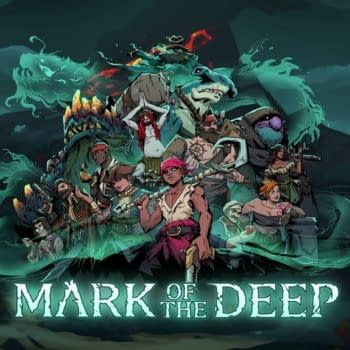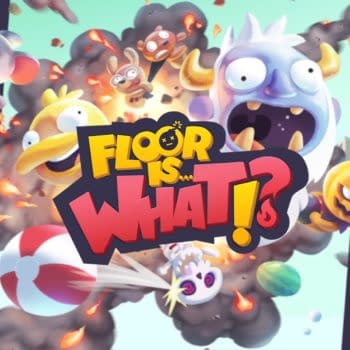Posted in: Games, Video Games | Tagged: donald trump, HRL, Parkland, Parkland shooting, video games, video games and violence
Trump to Investigate Video Games in Relation to School Shootings

In the wake of the shooting at Marjory Stoneman Douglass High School in Parkland Florida, many are calling on President Donald Trump to address gun control measures. While many of these calls have been to regulate the sales of semi-automatic weapons to civilians, there has been a large wave of pushback from Trump's party and the NRA.
Today during a meeting on school safety at the White House, Trump suggested that violent video games could be partly responsible for school shootings.
Trump's full comment reads:
"We have to look at the internet, because a lot of bad things are happening to young kids and young minds, and their minds are being formed, and we have to do something about maybe what they're seeing and how they're seeing it. And also video games. I'm hearing more and more people say the level of violence on video games is really shaping young people's thoughts. And you go one further step and that's the movies. You see these movies, and they're so violent, a kid is able to see the movie if sex isn't involved, but killing is involved, and maybe we need to put a rating system for that."
Blaming video games for gun violence isn't anything new for Trump, who, after the Sandy Hook shooting in 2012, tweeted, "Video game violence & glorification must be stopped—it is creating monsters!" His comments also echo those made by other Republican politicians, including the governor of Kentucky, who said last week on a radio talk show that violent video games were responsible for desensitizing people to the value of human life.
This isn't a new thread. Violent video games have been blamed for similar violent acts in the past, ever since Columbine. And, in fact, this line of thinking reflects the opinions of a small group of video game researchers who have blamed video games for all sorts of things for decades.
In fact, if you look at studies attempting to determine a psychological link between video games and violence, most of the results are inconclusive. Many studies of violent video games consider mundane forms of aggression as indications of violence. Those "aggressive" acts can include things like exposing others to loud noises or giving hot sauce to people who don't like spicy food. The data is often mixed, with some famous studies saying that video games increase aggression, while many indicate that exposure to video games does not blunt empathy long-term.
Part of the reason why the research is so divided comes to methodology, the limited length of the studies, conflating small acts of aggression with indications of larger violent tendencies, and an overall lack of research. There's also the correlation versus causation error, and the fact that some of this might be self-selecting. More violent personalities are likely more attracted to violent video games, but that trend does not indicate that those people would be more likely to commit mass murder. In fact, very little research has been done on the effects of violent video games on aggression levels in general. If you look through scholarly articles published about psychological studies on video games, you'll find few results.
You'll also find that many of the authors of these anti-video game studies are helmed by the same people, meaning you can quickly run into researcher bias. Craig A. Anderson and Brad J. Bushman are the two researchers who have studied video games more than any others in their field. They are also the most prolific and the most cited, especially by the anti-video game sect.
Anderson is known as the pre-eminent researcher on the effect of violent media on aggression by both the American Psychological Association and American Psychological Society. Many critics of Anderson's work believe that he overstates his results and fails to adequately acknowledge alternate views or limitations of the data on media violence. They also express concern that his claim of a definite causal link is not well supported by existing data (this essentially boils down to the causation vs correlation error). There's also the small fact that some of Anderson's studies were funded by the former National Institute on Media and the Family (NIMF), which was an advocacy group known to be critical of the video game industry. Meanwhile, Bushman is mostly known for his studies on the futility of catharsis and effect of violent video games on empathy.
So, while last week's shooting in Parkland, Florida has re-ignited the ongoing gun-control debate with a new sense of urgency, we're seeing a lot of the familiar scapegoats brought into the firing line. Video games, film, music, and even mental illness have been blamed for the shooting, much as they are every time this happens in the United States.
Yesterday Trump met with students and parents of victims at the White House to discuss the issue, a meeting in which he suggested the possibility of arming teachers. He's since tried to walk those comments back.
"I will be strongly pushing Comprehensive Background Checks with an emphasis on Mental Health. Raise age to 21 and end sale of Bump Stocks! Congress is in a mood to finally do something on this issue — I hope!" he tweeted earlier today.
Today's hour-long meeting with state and local officials from Florida also resulted in some strange moments. In addition to the President's short rant about video games, the internet, and some apparent misconceptions about how movies are rated, he also suggested that the solution to gun violence in schools requires "offensive measures within these schools."
"Unless you're going to have offensive capability you're wasting your time," he said, before once again saying that maybe teachers with concealed weapons would be a more cost-effective approach than hiring lots of security guards. However, most experts say that adding more guns to an active shooter scenario do more harm than good, and some see arming teachers as a form of acceptance that mass shootings are just a part of life in America.
In the end, it seems Americans just cannot talk sensibly about gun violence and take the obvious route. Many other countries have banned ownership of rifles and other guns and have reduced their rates of violent shootings despite still having access to violent video games and movies. Fewer guns available means fewer school shootings, and that's the bottom line. Limiting access to guns is the key here, not sanctioning unrelated media.




![[REVIEW] "Gang Beasts" is Zany Party Madness](https://mlpnk72yciwc.i.optimole.com/cqhiHLc.IIZS~2ef73/w:350/h:350/q:75/rt:fill/g:ce/https://bleedingcool.com/wp-content/uploads/2019/09/gang-beasts-7-350x350.jpg)




![[REVIEW] "Divinity: Original Sin II" Definitive Edition is Almost Perfect](https://mlpnk72yciwc.i.optimole.com/cqhiHLc.IIZS~2ef73/w:350/h:350/q:75/rt:fill/g:ce/https://bleedingcool.com/wp-content/uploads/2018/08/Divinity-Original-Sin-2-Definitive-Edition-art-350x350.jpg)





